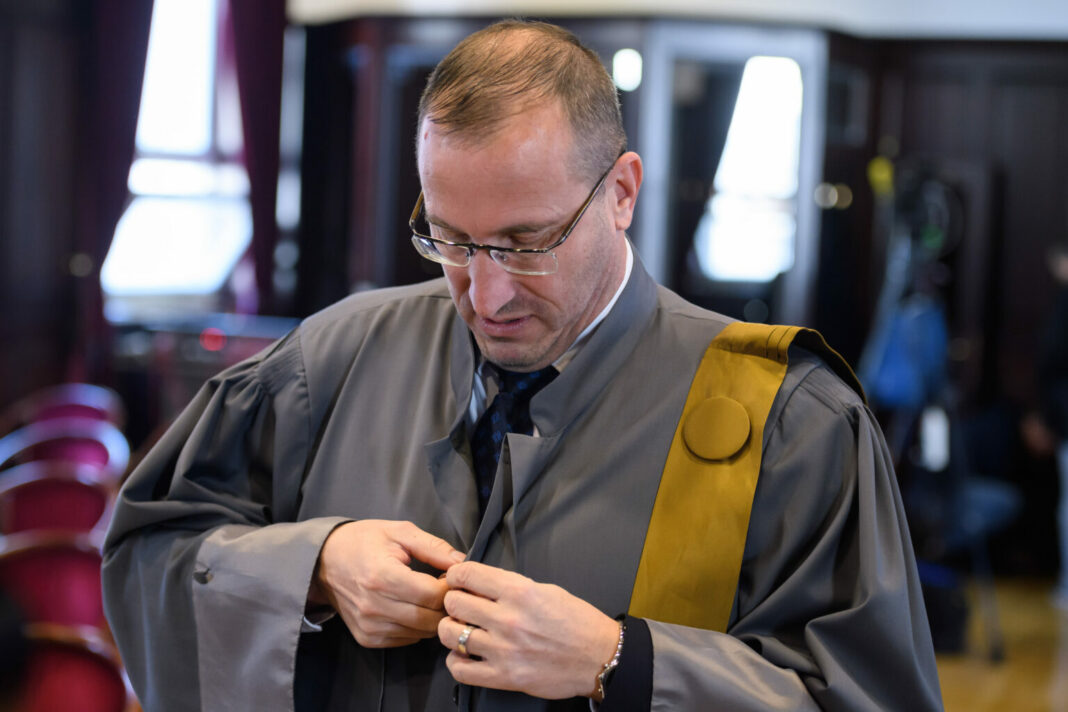By: Gal Kovač (Nova24tv.si)
National Assembly’s Commission for Public Office and Elections will propose to the National Assembly to reappoint State Prosecutor General Drago Šketa to the post he currently holds. At the joint meeting of the Commission and the Committee on Justice, he received ten votes in favour and five votes against. The MPs and the opposition Slovenian Democratic Party (Slovenska demokratska stranka – SDS) were very critical of the Prosecutor. Among other things, they accused him of selective prosecutorial work, cooperation with the Russian Federation, and pointed out a serious flaw in the system – namely, that Šketa was the only candidate for the position.
“We see the apparent selective work of the Office of the State Prosecutor General. The C0 sewage canal is being built without a building permit, and violence against landowners has taken place on several occasions. We also have the notorious case of the Gen- energy company and other examples. Has the Prosecutor’s Office detected that there is a need to react here; to initiate some kind of procedure?” asked MP Jože Tanko during the meeting.
A particularly serious accusation was directed against the Prosecutor General by SDS MP Dejan Kaloh, who recalled that last January, just before the start of the war, Šketa travelled to Moscow. Šketa replied that the Prosecutor’s Office had done what the situation dictated and that his trip to Moscow, on the occasion of the 300th anniversary of the Russian Prosecutor’s Office, was of an explicitly professional nature and that the cooperation agreement between the two offices had been cancelled.
Šketa was received in Moscow by the Prosecutor General of the Russian Federation, Igor Krasnov, with whom he signed a programme of cooperation between the two Prosecutors’ Offices. Krasnov was already on the list of persons subject to restrictive measures in 2021 “on the grounds of serious violations and abuses of human rights,” according to the Council of the European Union’s decision, reports the online newspaper Spletni časopis.
Lots of criticisms have also been levelled at the highly biased interpretation of justice. As SDS MP Alenka Jeraj said, at this very moment, there is a trial going on against Ludvik Tomšič, who shouted at protests against the government of Janez Janša that Janša should be killed. Ludvik Tomšič then pointed the finger at Nika Kovač, accusing her of being the organiser of the protests. MP Jeraj compared the authorities’ actions to the case when former President of the Republic Borut Pahor was threatened. At that time, the man who threatened him was sentenced to 11 years in prison. “When President Pahor was threatened, action was taken, but when Prime Minister Janša was threatened, the criteria seemed to be different. The Public Prosecutor’s Office should have prevented and condemned this.” Janša also responded to these double standards, writing on Twitter: “According to the Slovenian Prosecutor’s Office, you can now threaten anyone with death without any consequences – including prosecutors. You simply say that their conduct is causing you mental pain. And then we are surprised that young people also behave violently. The judiciary is simply telling them directly that this is the way to behave… “
It is also worth noting the case of selective justice, where the prosecution considered that the words spoken by Alojz Breznik about former Interior Minister Aleš Hojs were only the result of mental pain. Breznik wrote about Hojs that he was “a dog that needs to be liquidated,” but the Prosecutor’s Office said it believes that these were only provocative words.
A similar example of selective justice was highlighted by MP Jože Tanko, who said, “At the Prosecutor General’s Office, 60 percent of cases are thrown out. In the Kangler case, there were 22 proceedings, all of which were dropped. Were the public prosecutors not able to judge that they would not go through the judicial process? Was this a project to destroy a man under your leadership?”
Billion-dollar money laundering at the NLB Bank forgotten by prosecutors
MP Alenka Jeraj recalled another case of a crime where the Prosecutor’s Office completely failed. This is the case of money laundering in the NLB Bank, the famous “Farrokh” case, or as the expert Rado Pezdir called it – “the biggest financial scandal” in the history of our country. “Slovenia laundered a billion dollars of Iranian money from an embargoed country. The Prosecutor’s Office dismissed the money laundering cases. Only petty thieves are being prosecuted, but whenever serious investigations should be carried out, cases are thrown out. Do you think this is OK?” asked Alenka Jeraj.
Among the more topical cases, we are currently witnessing a renewed prosecutorial apathy towards the Gen-I case. In recent months, a number of suspicious business practices of the company have been exposed in public, which have been labelled as criminal by the former head of the criminal investigators. And yet, not much is happening to rectify any of it.

